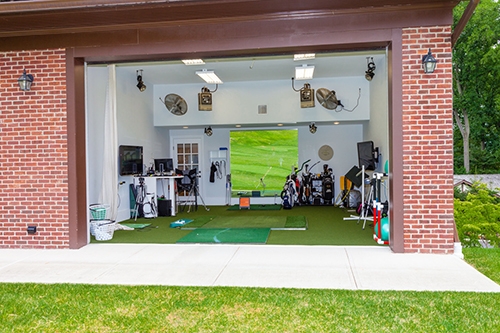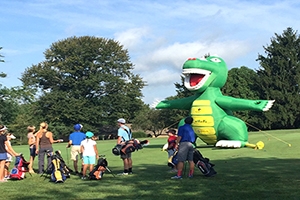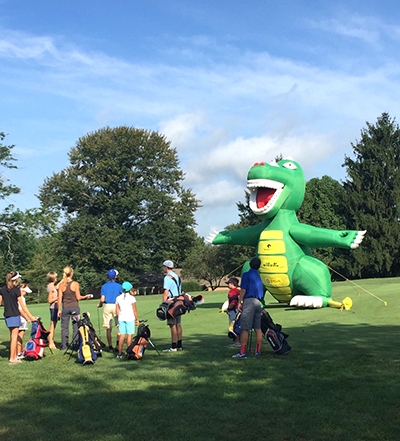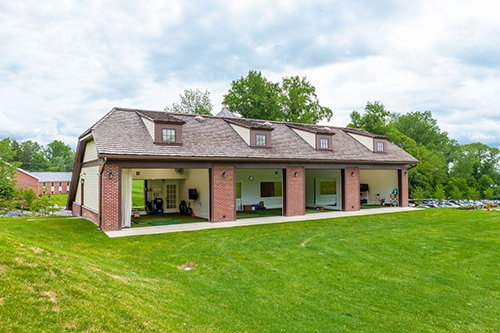December 3, 2018
Every year, many of the PGA Tour’s most important tournaments are played at private clubs. In fact, each of this year’s three major tournaments played in the US was at a private club, with the PGA Championship taking place at Bellerive Country Club just outside of St. Louis and the US Open being played at Shinnecock Hills on Long Island. Of course, as always, the Masters opened the major season at Augusta National Golf Club.
These and other storied clubs are perfect venues for major championships, but they are also the subject of persistent misperceptions that have dogged private clubs for decades. The truth is that private clubs play a very important role in their communities and for the game of golf itself.
Misconceptions
One of the most persistent misperceptions is that private clubs discriminate. Private club membership is no different from any other part of life: we tend to befriend and spend time with people who share similar values and interests. There are many different types of private clubs, including golf clubs, athletic clubs, social clubs, racquet clubs, yacht clubs, beach clubs and hunting clubs. There are even clubs for magicians, comedians, writers and thespians. They all share one common denominator: they provide an opportunity for people with a shared interest to pursue that interest. That’s why clubs rely on referral programs for membership to ensure that new members mesh with the current culture.
Over the past century and a half private clubs have evolved—and, frankly—improved, just like America has. Clubs are selective in admitting members, but that doesn’t (always) reflect discrimination. Private clubs are exclusive and value the privacy of their club and members.
We live in a time when tens of millions of Americans use social media to keep in touch and socialize with our friends and loved ones. In the past, people didn’t use technology to do these things; they actually got together and had real relationships, and private clubs were one of the earliest and most important way they did so.
 RELATED ARTICLE:
RELATED ARTICLE:
Support Sought For John Shippen Museum Room
Americans’ Constitutionally-guaranteed right of freedom of association allows club to establish a variety of different criteria as a basis for membership. For instance, there are women-only clubs, men-only clubs, and clubs that build their membership around religious affiliation, political leanings or family heritage. But, more often than not many clubs are simply a place for community, recreation and engagement among neighbors, classmates, friends and colleagues. A true, home away from home.\

Another misperception is that since they are private, clubs only benefit their members. In fact, private clubs are small business, and like other small businesses they benefit the community in many ways. The most obvious benefits are economic. Private clubs provide millions of jobs across the United States, contribute billions of dollars in taxes, and inject $21.5 billion into the economy each year. Many private clubs are also very philanthropic. They tend to host charity events, particularly golf tournaments, in support of a huge variety of good causes. Many also offer scholarships, particularly through caddie scholarship programs. Of course, charitable giving and support isn’t limited to the golf course. Many private clubs sponsor receptions, parties, and other types of fundraisers in support of local charities and individuals.
 RELATED ARTICLE: Caddie Academy Returns for Sixth Summer With Opportunities for Employment & Scholarships
RELATED ARTICLE: Caddie Academy Returns for Sixth Summer With Opportunities for Employment & Scholarships
Another myth about private clubs is that they are just about golf. Sure, most private clubs (85%) offer golf as a primary draw for members. But private clubs are so much more: from tennis and swimming to hunting and fitness, there are a wide array of experiences and types of clubs to suit all interests. The only limit on clubs’ focus is the limits of members’ interests and imagination.
In urban areas, city and athletic clubs reign, offering social programming for “clubs within a club” for literature, politics, bridge and wine as well as myriad athletic facilities and sports leagues. Dining experiences run the gamut too, from upscale formal dining to casual pubs in a plethora of facilities that offer spectacular rooftop views, sunsets over the golf course, and fun gathering places for families and friends.
The Private Club Experience
Ultimately, the private club experience is primarily about friendship. Clubs are safe, welcoming places where people come together to connect, play, and dine with people whose company they enjoy and whose interests they share.
That said, private clubs are taking the lead in promoting golf, which benefits all of us who love the game. One way they are doing so is by introducing creative programming. For instance, Medinah Country Club’s Golf for Life program is designed to benefit all golfers, from novice to low-handicap, by giving golfers specific targets to work toward, while allowing them to improve within the confines of their skill sets. As part of the program, Medinah has restored Course No. 2, with a number of upgrades, including an unusual feature: seven new tees to accommodate every different skill level in Medinah’s golfing community. Each of the seven new tees is designated by a color and corresponds to a skill group, sorting golfers by a number of criteria, including handicap, age, gender, and level of play. This system is designed to make golf more enjoyable for everyone, and keep people from quitting and just one example among many of how private clubs are promoting golf to the next generation.
Another misperception, that private golf clubs aren’t environmentally friendly, couldn’t be more wrong. The environment is central to the mission and success of private clubs, particularly those that offer golf. As such, they tend to be very proactive when it comes to sustainability and, in fact, clubs are much more environmentally-friendly than the typical homeowner. A recent survey of private clubs found that 74% pursue sustainable practices, and the typical club spends nearly $50,000 each year to promote sustainability. Like many environmentally-friendly businesses, private clubs use a variety of traditionally sustainable practices, including reducing the amount of water they use, particularly on golf properties; using environmentally safe products; and using recycled materials in their operations. Most clubs also have staff training programs in place to teach sustainable practices and most also participate in advanced environmental programs like Audubon International.
Perhaps the most persistent misperception is that clubs are relics of the past. Today’s private club is more reflective than ever of the values and interests of most active Americans. It’s more family-oriented and focused on fun, health and wellness.
Clubs are helping members balance fun and family by offering more social activities for families, children and guests. They are oriented more towards full family participation through a wide range of offerings, including pool-based activities, game nights, adult- and children-paired parties, and other family events. Many clubs offer junior sports camps for children to play golf, tennis or swim. Coffee-shop cafes and spa amenities also make clubs a destination to serve all members of the family.
Examples of clubs’ focus on family abound. At the Union League Golf Club in Philadelphia, complimentary golf lessons are offered to all members, including spouses and their children. The idea is to help the entire family improve their golf skills so they enjoy the game more and turn playing into a family event. At Medinah Country Club, the Golf for Life program is designed to benefit all golfers, from novice to low-handicap, by giving golfers specific targets to work toward, while allowing them to improve within the confines of their skill sets. These are just two examples from thousands of clubs across the United States.
Clubs have always provided recreational outlets for active members through golf, tennis, sailing, swimming, and other activities. However, today’s private club is more committed to promoting members’ fitness as well. That may include exercise studios, physical therapy and private trainers, fitness programs and spas, and it extends to the clubhouse menu, with many clubs offering healthier, more nutritious food choices. In short, many private clubs have expanded their offerings to better reflect Americans’ modern lifestyles.
Private clubs offer a greater range of lifestyle and recreational benefits, and to a wider cross-section of members, than ever before. And that’s why private clubs still matter.
 Henry Wallmeyer is president and CEO of the National Club Association, the national group representing private clubs across the US. He can be reached at wallmeyer@nationalclub.org.
Henry Wallmeyer is president and CEO of the National Club Association, the national group representing private clubs across the US. He can be reached at wallmeyer@nationalclub.org.






